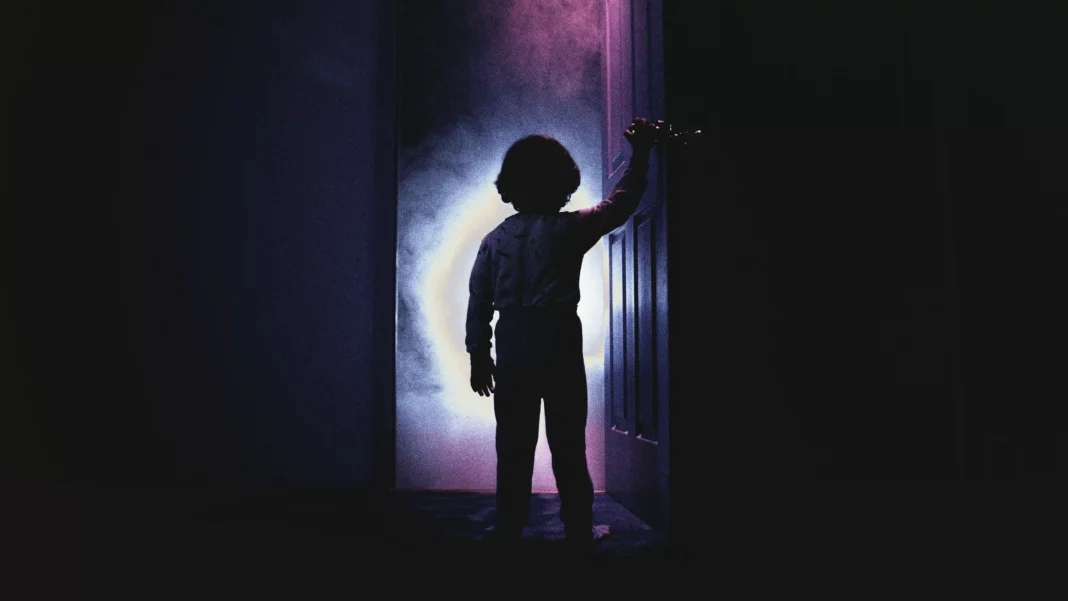Let’s face it, sometimes kids can be really creepy – and whether it’s just their imaginations (or not), they can create some serious nightmare fuel.
It’s 3am. Your eyes snap open as you’re rudely jolted from slumber by your 4-year-old standing silently at your bedside, backlit by the hallway light like some tiny, pyjama-clad spectre.
“The old man in my closet wants to know if I can come play,” they whisper. Cool, cool, cool, cool. Totally normal. Nothing to freak out about.
If a kid you know has ever said something that made you question reality, you’re in good company. Children have an unmatched talent for delivering lines that would make a horror screenwriter jealous.
But what’s actually going on here? Are kids tapped into a supernatural frequency adults have tuned out? Or is there a much more down-to-earth explanation?
Why kids see what we don’t
From a developmental perspective, young children’s brains are simply wired differently. “From birth, babies are wired to spot faces and patterns everywhere – shapes in curtains, shadows on the wall, stuffed animals – because that’s how they learn about people and connection,” explains Cam Caswell, an adolescent psychologist and parent coach. When your toddler waves at nothing, they’re practicing social skills with shadows, not channeling spirits.
But Amanda Lieber, a medium and intuitive spiritual coach, offers a different take. She says children exist in a receptive or open state far more frequently than adults, and this “flow state” is what she describes as “the realm of spirit”.
Because children engage in constant play, they “practically live in this receptive state, which is why they’re more likely to encounter paranormal phenomena”.
Additionally, “the minds of children, especially the little ones, have yet to be fully developed and conditioned by their caregivers and society. This makes them more accepting of the things they might see or feel”.
Whether it’s brain development or spiritual openness, the creepiest declarations often occur when kids are between the ages of 3 and 7. “Their brains are still learning how to separate what happens inside their heads from what happens in the real world, so what they imagine or dream can feel absolutely true,” Caswell said.
Lieber sees this differently. “The younger we are, the more connected we are to our divinity and to the ‘spirit world’ on a vibrational level,” she said. “This is something that gets ‘muddied’ as we get older, when societal belief systems begin to take hold, which is typically around the age of 7.”
Caswell reports that, as children grow, their prefrontal cortex and hippocampus mature around age 8 or 9, helping them keep track of where their ideas, stories and memories originate. Kids become more skeptical, and the ghost stories naturally fade.
But even as adults, we still blur the edges between imagination, memory and reality. Ever wake up from a dream so vivid you had to stop and ask yourself if it actually happened? The difference is that, as adults, we’ve learned to double-check and put those experiences in context better than kids can.
And what about those creepy ‘imaginary friends’?
More than half of children create imaginary friends between the ages of 3 and 8, according to Caswell. Some of these invisible companions feel disturbingly real. They make specific demands, share unsolicited information, and have stronger personalities than some adults you know.
From a developmental perspective, these companions are typically healthy, acting as unpaid therapists who help kids practice conversation, problem-solving and emotional regulation.
“Some imaginary friends feel especially vivid or lifelike because young children have highly active visual and emotional imaginations,” Caswell said. “Their developing brains can create sensory experiences – like hearing a ‘voice’ or sensing a ‘presence’ – that feel real, especially in quiet or emotional moments.”
Lieber offers a spiritual interpretation, noting that these experiences may be genuine encounters with a spirit. “The most common experience reported by parents is usually their child seeing or sensing Grandma or another deceased relative,” she said, adding that there are countless reports of children encountering unknown spirits who used to live in their home or the place they are visiting.
Either way, only worry if your child seems frightened, distressed or says the “friend” is controlling them.
But how can you tell if it’s



